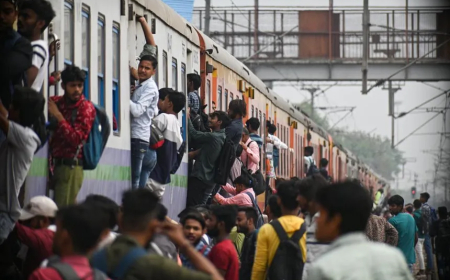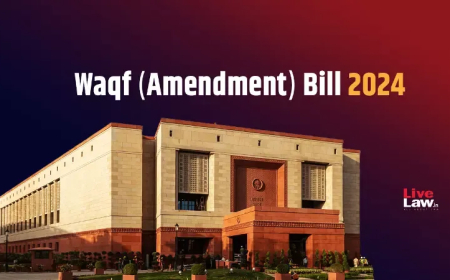Tariffs, Ethno-Nationalism, and the Case for Free Trade
This piece critically examines the resurgence of protectionist policies, particularly tariffs, in the context of rising ethno-nationalism. It argues that such measures distort market competition, leading to inefficiencies, inflation, and economic stagnation. The author emphasizes that for developing economies like India, embracing free trade, reducing tariffs, and fostering global integration are essential for sustainable growth and innovation. The piece advocates for economic freedom and warns against the long-term consequences of nationalist economic policies.

"Free Trade, Not Fortress Economies: Resisting the Nationalist Turn”
In the aftermath of the Trump administration’s decision to impose reciprocal tariffs on April 2nd—ironically termed “Liberation Day”—a troubling trend has re-emerged in industrial policy debates: the resurgence of ethno-nationalism. While often submerged in the rhetoric about self-reliance and protecting domestic industry(in the case of the US, it’s really about reindustrializing while maintaining the US Dollar as the Global Reserve currency), this ideological approach ultimately undermines the pillars of economic freedom, consumer choice, and sustainable growth.
At its core, protectionism—particularly in the form of tariffs—distorts competition. It signals a government’s intention to pick winners, rather than creating the conditions under which winners emerge organically through innovation and market efficiency. Far from fostering global competitiveness, tariffs insulate inefficient firms, shield monopolies & oligopolies, and nurture bureaucracy and red tape. They lead to higher prices for consumers in the form of demand-pull inflation(caused by an increase in demand for goods produced by domestic firms as tariffs make imported goods more expensive) or cost-push inflation as tariffs increase the cost of imported raw materials, intermediate goods, and capital goods raising production costs which are then passed on to us, the consumers. The long-term result is economic stagnation, as domestic industries lose the incentive to evolve or improve causing increasing levels of unemployment & deteriorating per capita income levels.
Moreover, protectionism stifles the process of knowledge spillover—the sharing of ideas and best practices across firms that enables productivity gains over time. When domestic firms are shielded from competition, they are also shielded from learning.
The damage doesn’t end with inefficiency. Tariffs encourage rent-seeking behaviour, where firms invest in lobbying for continued protection rather than in innovation or efficiency. This fosters corruption, misallocates capital, and burdens the state with the cost of subsidizing fundamentally uncompetitive industries. Rather than allowing the allocation of resources according to comparative advantage, the economy becomes entangled in low-potential sectors, reinforcing stagnation and waste.
These inefficiencies have serious macroeconomic consequences. As public spending rises to prop up protected industries, debt accumulates, creating long-term fiscal burdens and inflationary pressures. At the same time, foreign governments often retaliate, curbing exports and undermining domestic industries that depend on access to global markets. In effect, tariffs are a self-inflicted wound—especially for economies striving to expand their global footprint.
It’s important to remember the baseline fact that the production of many goods are the result of complex global supply chains that pass through multiple stages in different geographical locations. Hence, disrupting this whole system through arbitrary protectionism would be a crackdown on the ability of firms to scale and ensure cost efficiency.
For developing economies like India, the lesson from the 20th century is clear: export-oriented industrialization is the path to prosperity. By promoting voluntary exchange, innovation, entrepreneurship, and consumer freedom, governments can foster spontaneous, bottom-up economic growth. Abolishing tariffs on intermediate & capital goods, signing Free Trade Agreements and liberalizing capital inflows is the way forward for India. State intervention, coerces rather than empowers, and ultimately weakens the very foundations of a free and prosperous society.
On a philosophical level, economic prosperity is rooted in freedom—the freedom to trade, invest, create, and exchange. When governments embrace openness and the flow of ideas, talent, and capital, they create an environment where high-productivity firms can thrive, and where innovation flourishes.
Trump’s tariff regime, implemented with the stroke of a pen, disrupted the post-WWII global economic order—an order built through diplomacy, dialogue, and institution-building. The generation of our great-grandfathers, who turned out to be the architects of the global trade system understood that peace and prosperity are inseparable from economic openness. In contrast, Trump’s heavy-handed approach ignored not just the economic implications of tariffs, but also the importance of deliberative institutions and cooperative engagement.
In the end, protectionism offers the illusion of strength, but it is openness, competition and individual agency that delivers real, lasting prosperity.
What's Your Reaction?



















































